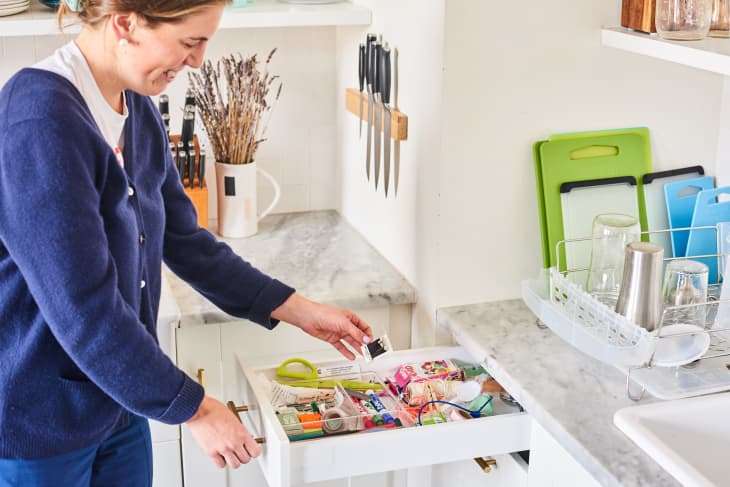As a neurodivergent person, I’ve always had a love/hate relationship with keeping my home tidy. I can’t be trusted to clean sporadically throughout the day because I often get distracted from the original task I was doing. As a result, I usually save cleaning sprees for when I’m super stressed and overwhelmed by the clutter. Living in a perpetually messy space made me feel like a failure, especially when it frustrated my partner or roommates.
I thought I’d always have this fraught relationship with tidiness until I got some hard-hitting advice from my good friend, Brie. We’d met in an ADHD support group and I knew full well she had a full roster of distractions as a mother of two. Instead of scolding me about my propensity to get distracted while cleaning, she simply offered a kind alternative: “Having a clean home is morally neutral. You’re totally overthinking it and driving yourself crazy in the process.”
That didn’t make a whole lot of sense at the time, so Brie elaborated by describing her laundry routine . She explained that she didn’t fold her children’s clothes. At three and four, they didn’t care if their clothing was wrinkled, and they’d likely stain it anyway. Instead, she had a bin system in the laundry room where she sorted garments by size (because her younger child could wear their sibling’s clothes if needed, but not the other way around). She also had bins for her and her husband’s underwear and pajamas.
This system transformed laundry from an hour-long process to one she could do in minutes. With this example, she drove her belief system home: Cleaning the clothes was important; folding them was not.

Now, I’ve reframed my cleaning routine to decide what is or isn’t helpful to my household. I tend to use a lot of bins around my house to keep clutter off the floor. Before, I made sure my dog’s toys were always placed in a single toy box in the living room. Now, there are a few different boxes throughout the home to always make sure there are no tripping hazards. In Brie’s example, having “one place” for the toys is morally neutral; a safe path to walk isn’t.
Using bins helps me prioritize parts of my routine in a way I can understand. I have a basket on the kitchen counter where I place things that “belong” in other rooms. Things like sunglasses, phone chargers, and spare socks go in that bin until I have a day where I can devote time and energy to putting them in their proper place. This bin system helps make sure my counter is a safe place to prepare meals, while saving my partner the frustration of living in a cluttered space.
These systems aren’t an indictment of my failure to be tidy as a neurodivergent person. It’s a way I can accept myself the way I am, and ultimately, make my home a safer, more pleasant place to be.
